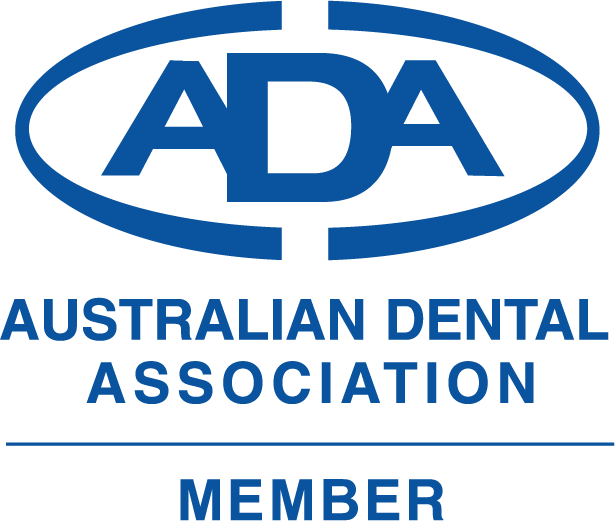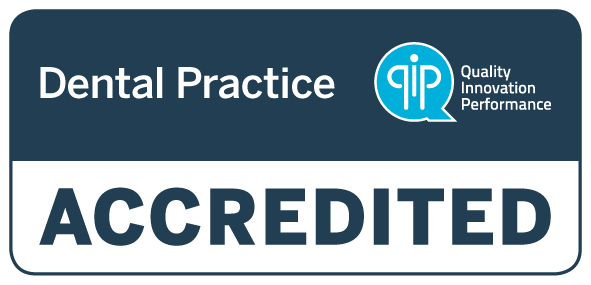Please donate to our Dental Health Week fundraiser to support the Australia Dental Health Foundation.
Follow this link: www.givenow.com.au/cr/st-peters-dental-clinic
or scan the QR code: 
: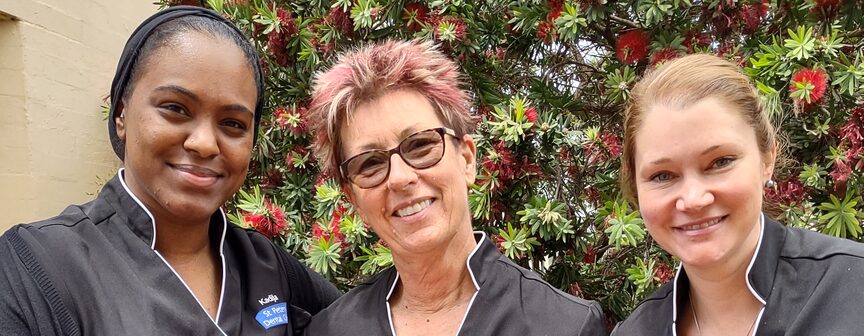

Eid mubarak to all our Muslim staff, patients and friends!
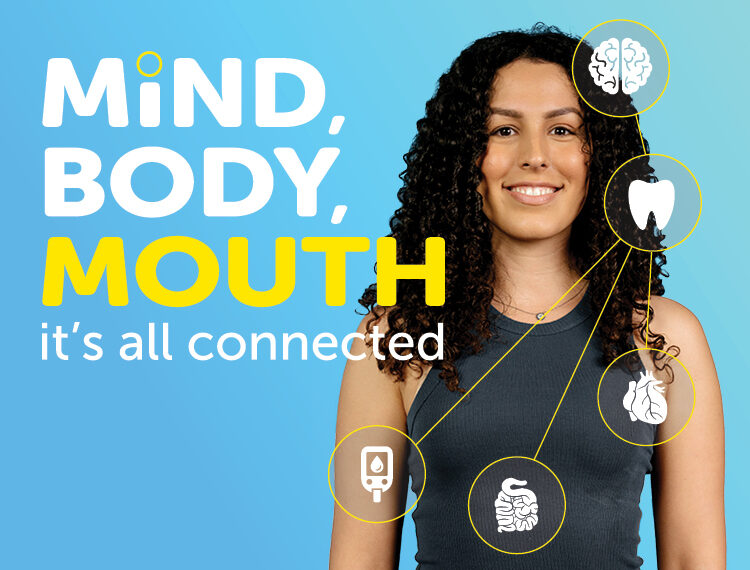
A new study from Japan is the latest to find a link between gum disease and a higher risk of dementia and brain shrinkage.
A causal link has not yet been established between good dental hygiene and progressive brain death. But studies are repeatedly finding an association.
Research from the Division of Ageing and Geriatric Dentistry at Tohoku University, Japan, found that “gum disease and tooth loss were linked to shrinkage in the hippocampus”.
The hippocampus is a small, vulnerable part of the brain involved in long-term memory formation and memory retrieval. It is also part of the limbic system regulating motivation, emotion and learning.
The study recruited 172 people, average age of 67, who showed no cognitive decline.
In the first phase of the study, participants had their gums examined. A probe was used to establish severity of disease. Participants also had their teeth counted. And they took memory tests to establish their cognitive health.
Their brains were scanned by MRI scans in order to measure volume of the hippocampus at baseline. They were scanned again four years later.
Hippocampal atrophy is an early characteristic of Alzheimer’s disease and other forms of dementia.
Researchers found that the degree of tooth loss and the severity of gum disease were correlated with the pace and degree of brain shrinkage.
After adjusting for age, the researchers found that “for people with mild gum disease, the increase in the rate of brain shrinkage due to one less tooth was equivalent to nearly one year of brain ageing”.
For people with severe gum disease the increase in brain shrinkage due to one less tooth was equivalent to 1.3 years of brain ageing.
“The findings suggest that retaining teeth with severe gum disease is associated with brain atrophy,”said study author Dr Satoshi Yamaguchi.
A 2021 study from New York University found that tooth loss is a risk factor for cognitive impairment and dementia. With each tooth lost, the risk of cognitive decline grows.
Read the full story here: https://thenewdaily.com.au/life/


Please donate to our Dental Health Week fundraiser to support the Australia Dental Health Foundation.
Follow this link: www.givenow.com.au/cr/st-peters-dental-clinic
or scan the QR code: 
:
If you are in extreme pain or experiencing a life threatening emergency, please call 000 or visit the emergency room at your local hospital.
Alternatively you can call Health Direct on 1800 022 222 for after hours advice
For dental clinics open during the holiday period check out the Australian Dental Association webpage here: Emergency Dental Care
If you are eligible for SA Dental Services there is a list of local clinics to call during business hours: SA Dental Clinics
Don't forget your Dental Health during this time: Teeth.org.au
With the Festive Season just behind us and a New Year in view, let's focus tooth friendly foods.
Essentially, all foods that are considered healthy for your body are also healthy for your teeth!
This means eating plenty of fresh fruit, vegetables, some protein, and for most people, some dairy and grains. A variety of foods containing all the essential vitamins and minerals will help you build healthy teeth and gums from the beginning. High fibre, low fat, low sugar and low salt foods are recommended. Anything highly processed, eg foods that would not be recognizable to our grandparents as food can contain unknown or unwanted ingredients such as preservatives, colourings, flavourings, and thickeners!
A lot of people have been told that lollies and sweets are to blame for tooth decay. However, you might be surprised to find out how many other foods contain hidden sugar of one sort or another. These include fruit juices, soft drinks, mixers and coolers, honey, sultanas, breakfast cereals, pasta sauces, savoury biscuits, and soup mixes. Some sugars are 'natural' eg in honey or fruit juice, and some are 'added' usually in the form of sucrose. Other forms of sugar include glucose, fructose, corn syrup, maltose, dextrose, and corn starch . These 'hidden' sugars may not be immediately evident as quite often food acids are added to processed foods to hide the sweet taste.
It pays to be an aware consumer and read the label!
NOTE:
Natural sugars are not actually any healthier than added sugars - the decay causing bacteria don't care about the source or the physical form of the sugar. However we know that soft sticky foods are worse for tooth decay as they stick around your teeth. Also, snacking or grazing throughout the day can be problematic compared to eating less frequently eg at mealtimes, because it takes your saliva up to two hours to recover from an acid attack caused by decay bacteria. So eating withing the two hour window just continues the acid attack.
Now for the good news: Some dairy foods are actually preventative against decay eg milk, cheese and yogurt. This is due to casein - a milk protein which helps remineralise chalky spots in teeth. Their calcium and phosphate content is not a disadvantage either, as these are basic building blocks for tooth minerals.
Contact us at St Peters Dental Clinic for more information: http://www.stpetersdentalclinic.com.au/contact
Many people feel anxious going to the dentist. This could be due to a bad experience as a child, general anxiety about lots of things, or fear of the unknown. Sometimes we don't even know the reason, and sometimes the fear is so disabling that it stops you doing what you want or need to do in life. This is called a phobia.
Here at St Peters Dental Clinic we have many ways to make your visit and that of your children more comfortable and less 'scary'.
For a start you can do a virtual tour of our clinic before you arrive. You can also check out our team at St Peters Dental Clinic . Consider reading a blog or checking some of our links for information about Dentistry. You can also book appointments online and fill out your 'new patient information' before you come in.
When you arrive we try not to keep you waiting unnecessarily. Our waiting room has a toy box for kids. Our staff are friendly, and will answer any questions you have. We actually enjoy the chance to explain what we do, and no question is too 'dumb' to be worth asking.
Dr Jane is very patient, and trained in Dental hypnosis to help make your treatment more comfortable and relaxed. All our clinical staff are gentle with treatment procedures including local anaesthetic if needed. If it helps we have sedation available, as well as specialist referrals if required.
In general we prefer a calm, unhurried approach, and always give you time to tell your story. People from any background are welcome here, and your preference for practitioners and treatment methods will be respected. Our staff come from diverse cultures, and speak a number of different languages.
We have a genuine interest in getting to know you, and helping you achieve your dental goals. We hope this resonates with you, and look forward to making contact.
Well, it is not an official title or specialization, but describes someone who has an interest in the field, and probably substantial experience in treatment planning, prosthodontists, implants, or crown and bridge. They may have worked across different sectors, for example public/private, country/city or local/overseas. They may also hold a post graduate qualification but have not registered as a specialist.
Restorative Dentistry focuses on restoring lost function or the appearance of your smile with freehand bonding, implants, new fillings, crowns, bridges, dentures, tooth whitening, or aesthetic recontouring.
Together we explore the options, discuss your priorities, finances, time factors, lifestyle etc, and then consider the most cost effective solutions for your situation. So that's it in a nutshell!
1. Erosion
Tooth wear can happen from erosion, that is chemical disolving of tooth structure. The most common causes are food acids, esp those in sports drinks and carbonated soft drinks. But other sources include sparking wines, white wine, soda water, chewable vitamin C tablets, citrus fruits, apples, strawberries, pineapple, pickles, salad dressing etc. Erosion can also result from outside sources eg swimming pool water in the case of competitive swimmers or stomach acid from reflux or some eating disorders.
In all these cases it is really important not to make the erosion worse. Drink plenty of water, rinse your mouth with water after erosive foods or drinks and don't brush your teeth for at least an hour after the erosion incident, whether it is vomiting or erosive drinks. In addition you can protect your teeth ahead of time with fluoride gels, or remineralising solutions eg tooth mousseTM. Another really useful strategy is to chew sugar free chewing gum. This helps your saliva neutralise acids very much faster than just waiting for nature - 20 min compared to 2 hours. Erosion cavities can be filled with tooth coloured filling materials especially if they become sensitive or deep enough to turn into a food trap. Check out this website for more information: https://www.erosivetoothwear.com/
2. Abrasion
This is tooth wear that happens from an outside source eg a hard toothbrush or toothpick, or even hard food. It is most obvious on the necks of teeth near the gum line. The tooth enamel is thin in this area and easily worn down, and the root surface dentine is even softer and more easily abraded.
What you can do is avoid hard toothbrushes and toothpicks, abrasive toothpaste and other abrasives eg charcoal, salt and bicarb soda for cleaning your teeth. These can be extremely dangerous when mixed with vinegar or similar as this adds tooth erosion to the damage. Changing to an electric toothbrush can help as these have an oscillating rotating movement rather than scrubbing. Some also stall or change colour when you press too hard.
Abrasion weakens teeth at the narrowest part of the tooth. Sometimes teeth can also become quite sensitive and a lot of people do not like the yellow look of abraded root dentine. Your dentist can fill abrasion cavities that become sensitive or look 'ugly', but the main aim is to break the habit of wearing the teeth in the first place. Otherwise you will just wear away the new filling!
3. Attrition
This is tooth to tooth wear without food inbetween. It can happen at night when people grind their teeth without consciously being aware of the habit, or during the day when concentrating or focussing on small fiddly details. Stress is considered a factor, but in most cases your mind is just busy with something else and the grinding is a repetitive movement at an unconscious level.
It is very difficult to stop a habit. But you do have control over the process during the day. Awareness of factors that start the clenching or grinding allow to you intercept the process. For example you can learn to relax your lower jaw and put the tip of your tongue between your front teeth. When you start to close your mouth your teeth automatically touch your tongue and your jaw opens again. Remember: Your teeth should only be touching when you are eating food. At all other times there should be a small space - about 3mm - between them.
Night time grinding is much more difficult to prevent. Winding down before bed may help eg a herbal tea or hot chocolate, avoiding scary movies or complex online games, reelaxing music etc - whatever works for you. A reminder before you drift off to sleep to wake up if you grind too hard is extremely effective. This already happens in many cases when people wake up partially and realise their teeth are tightly together, their jaw hurts or their muscles are tight, and there may be a repetitive thought going through their head. Relax the jaw, roll over and go back to sleep.
If this is still not effective, or the tooth wear is severe, a nightguard may be the answer. This is a custom made U-shaped piece of plastic which is usualy worn on the upper teeth during sleep and prevents the teeth from grinding against each other. It also 'jacks' your bite open slightly which makes it more difficult for the muscles to grind hard. Finally it acts as a 'foreign' object reminding us not to continue grinding.
A final note:
Restoring worn teeth to their original state, or even a reasonable state can be complex and quite expensive. It is far better to prevent the problem in the first place. Talk to your dentist for more information.
Also see my Blog: "What is a restorative dentist?"
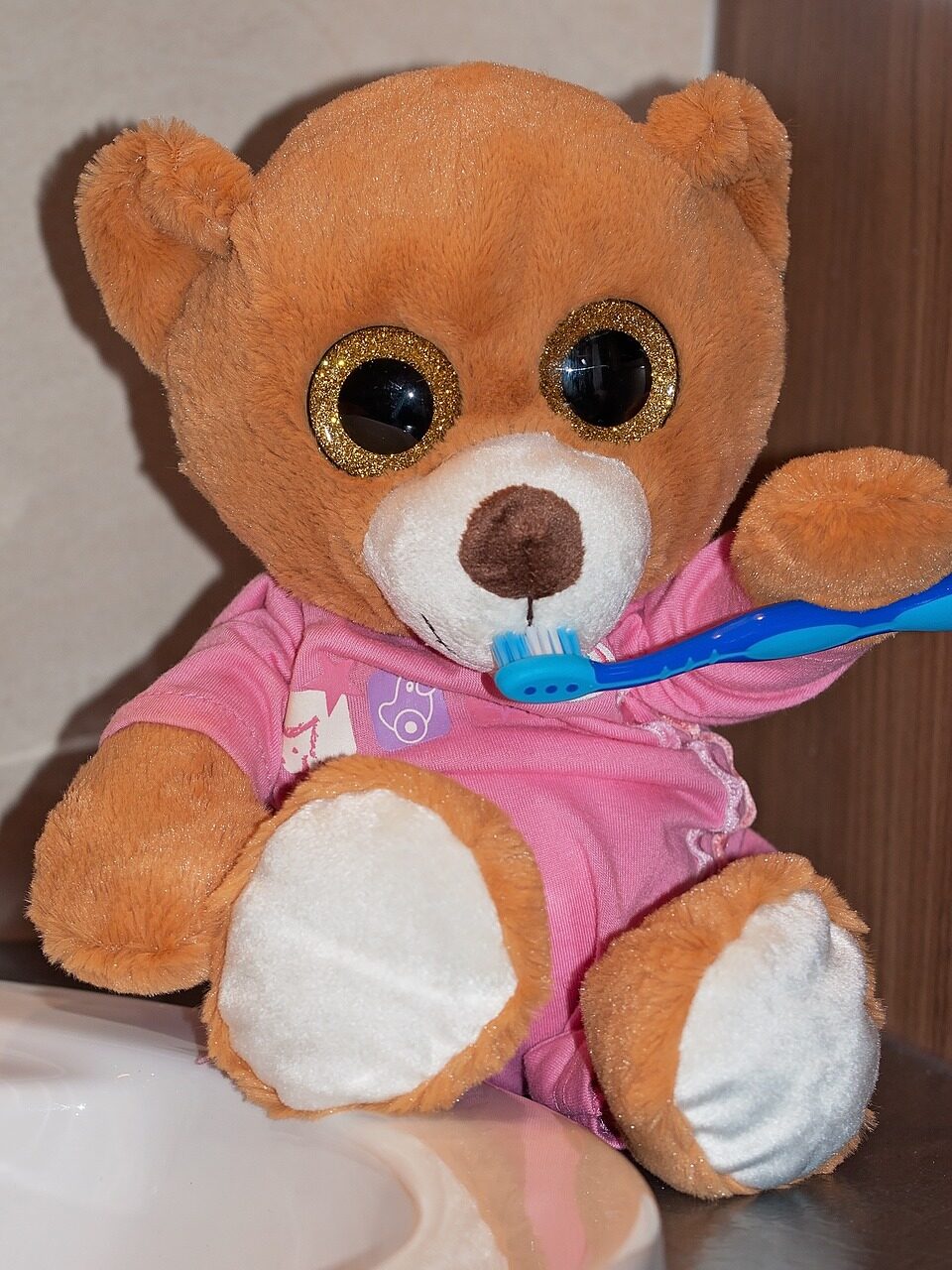
Tooth decay, or 'dental caries' begins as a local chalky spot or loss of minerals on the outside enamel of a tooth. Bacteria living in your mouth eat a portion of the sugars and simple carbohydrates you consume and metabolise them to acids which start eating holes in your teeth. You can interrupt the process at many stages:
1. Starve the bacteria. Avoid sucrose (white sugar) and sweet foods - these are bacterial favourites and easiest for them to digest. But don't be 'conned' into thinking that honey or raw sugar are healthier - the bacteria love them too.
2. Minimise the frequency of sugar intake. After you eat something sweet it takes 2 hours for your salive to clear the acids produced. Mouth bacteria are like little babies - they need frequent feeds. Don't feed them regularly and they will go away, or at least be kept in check by less harmful bacteria. This means regular meals are less harmful than many snacks or grazing throughout the day.
3. Consistency / texture is important. Sweet sticky food such as cakes, toffees, lollies, dried fruit, jams etc are more harmful or cariogenic (decay promoting) than sugar in liquid form eg soft drinks, mixers or cordials, which again are more problematic than solids, eg chocolate, a dry biscuit or eating desert with your meal.
Fresh fruit, although sweet, contains plenty of water and fibre, so it tends to end up in your stomach, not on your teeth. So, diet is very important, but not just what you eat, but how often and in what form. In general, the less processed the food is the better, and most savoury foods are 'tooth neutral' in terms of decay potential. Some dairy products eg cheese or joghurt even have a protective effect due to the protein casein.
Another way to interrupt the decay process is by physically removing the dental plaque (bacterial film) from your teeth on a regular basis. Tooth brushing does this quite well, but a toothbrush cannot get to all surfaces of the teeth (especially where they touch each other), so flossing or removing plaque from between your teeth eg with interdental brushes, flossettes, or toothpicks is also recommended at least once a day.
Decay causing bacteria are quite 'clever' - they use some of the sugar you consume to create a 'glue' which helps attach them to your teeth so they cannot be easily removed by rinsing for example. This is called a 'biofilm', and becomes a complex community of different bacterial colonies, their food stores and protective devices living on your teeth. The longer it stays undisturbed the harder it is to remove, and the more 'dangerous' and selfsustaining it becomes. Brushing and flossing (or equivalent) disrupt the plaque biofilm, so remember to brush and floss at least once a day. Twice a day brushing is recommended as most people are not as perfect as we would like to be.
Early dental decay is a reversable process. Minerals lost from the surface of the enamel can go back into the enamel. Your saliva does this automatically. You can help the process by supplying the required minerals from toothpaste, fluoride gels, tooth mouse or other reminerizing solutions.
Decay takes time - up to a year in many cases from a small chalky spot to an actual cavity forming in a tooth. Once a cavity has formed and the enamel structure has been lost, the bacteria move into their new home and continue eating away at your tooth. At this stage remineralisation is no longer sufficient. The bacteria must be physically removed and replaced with a filling material to compensate for the lost tooth structure. Sometimes the amout of tooth structure eaten away is significant, and more complex restorative techniques are needed, such as a crown. In addition, the decay process may progress towards the 'pulp'(living core or 'nerve') of the tooth and cause sensitivity, or even pain and infection if ignored. Complex treatment or even removal of the tooth may be needed, so clearly it is best not to allow decay to progress to this stage.
Se my blog:"Prevention is better than cure" for further ideas
 Merry Christmas, happy holidays and a safe start to 2021!
Merry Christmas, happy holidays and a safe start to 2021!
There are currently no blog comments.
